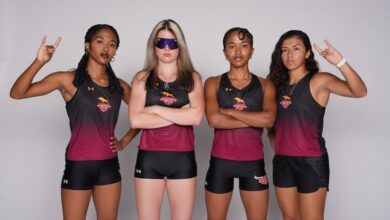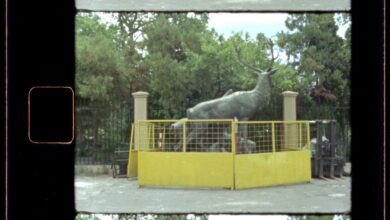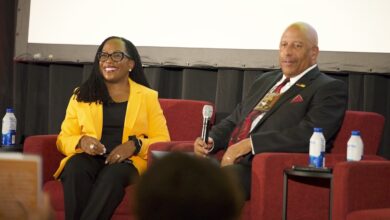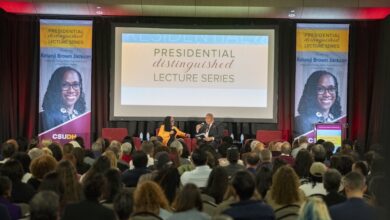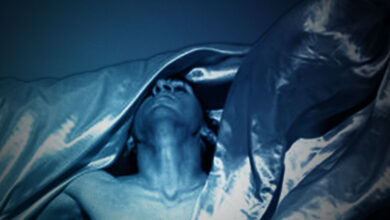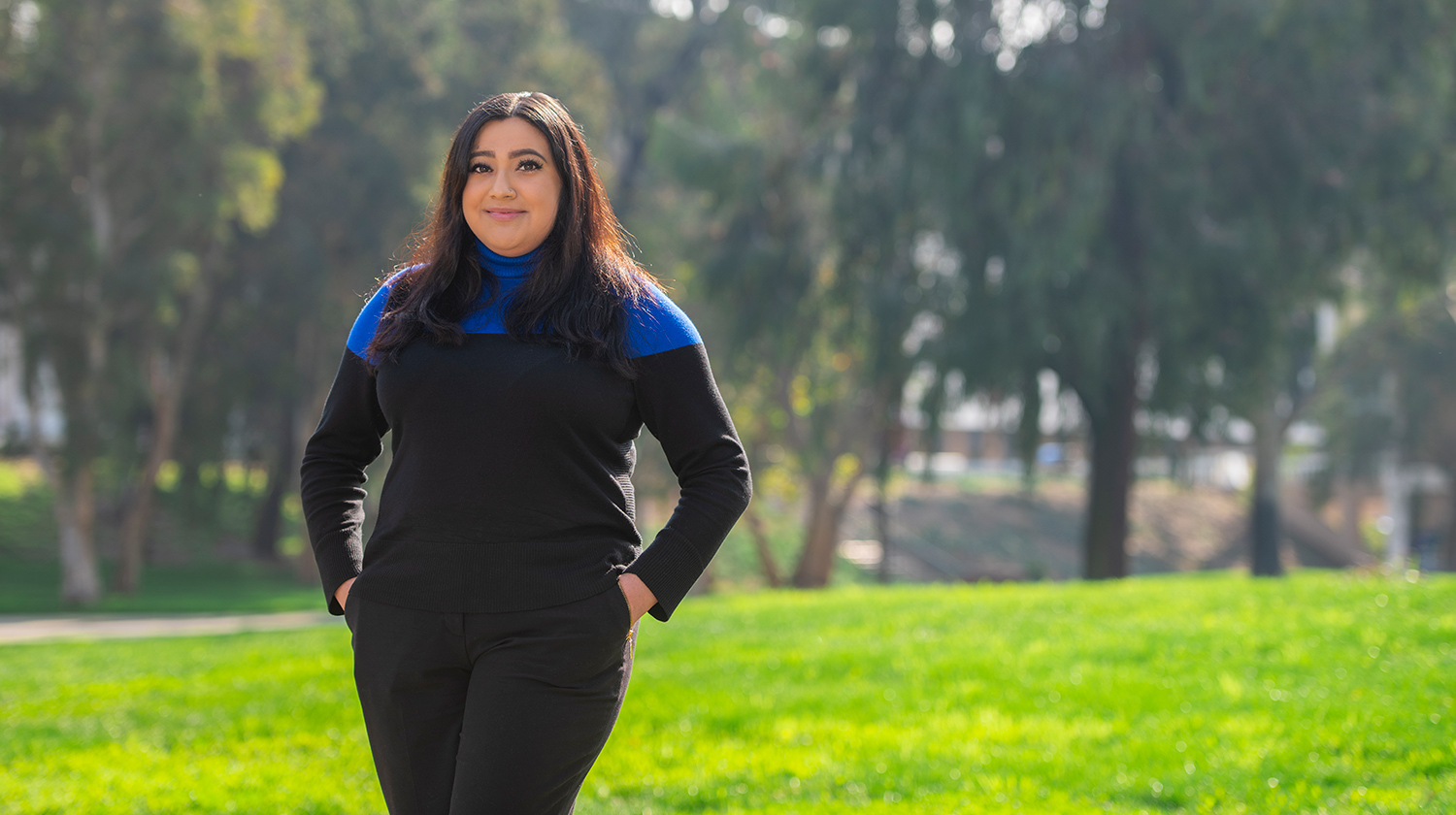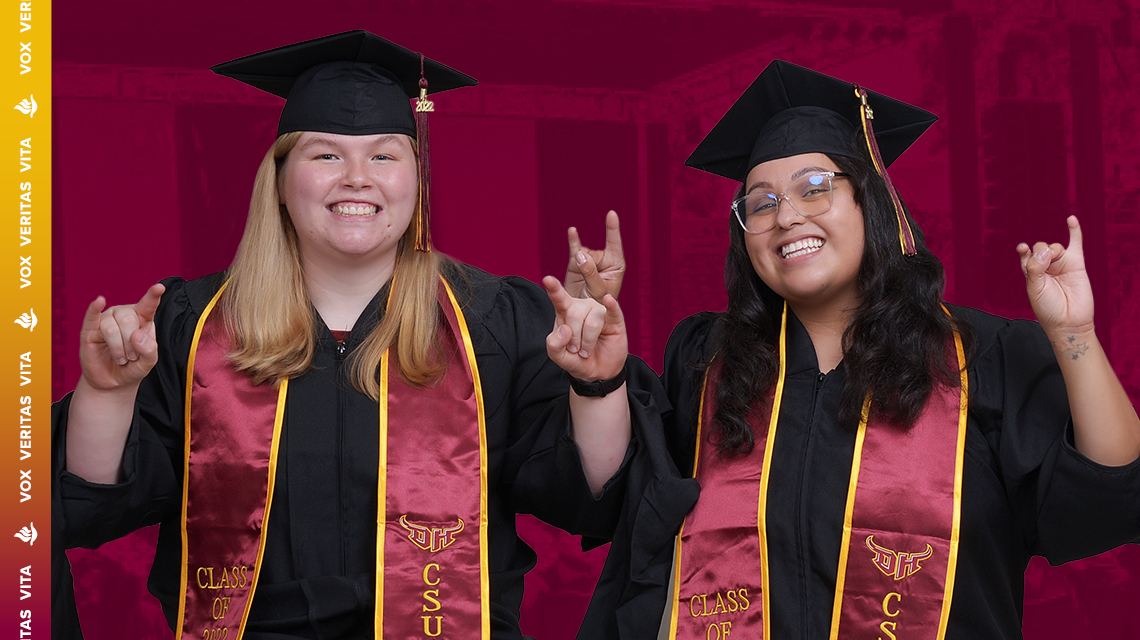
For Martha Bretado and Rachel Kroener, the field of prosthetics is about much more than creating new artificial limbs for patients. As people who have physical disabilities themselves, the two students understand the importance of fostering community with their patients, building up their confidence, and showing them life’s full range of possibilities.
Bretado and Kroener became close friends during their graduate studies in CSUDH’s Orthotics and Prosthetics program, having bonded over their shared experiences and passion for the disability community. This semester, they graduate from CSUDH’s Orthotics and Prosthetics program with their master’s degrees in health sciences with the intention of becoming certified prosthetists.
Bretado, who was raised in the City of Industry, Calif., and currently lives in Huntington Beach, was born five months prematurely with Amniotic Band Syndrome, which resulted in the congenital loss of her left leg and several partial fingers. As a child, she was fascinated by castings during her prosthetic leg fittings, and wanted to learn more about the process. In retrospect, Bretado wishes that she had known other people with limb loss or disabilities–at times, her condition made her feel isolated.
“Growing up, I never met anyone with an amputation,” Bretado says. “At certain ages, I shielded myself from the world a little bit. I wanted to cover my leg and not talk about it.”
As she got older, Bretado became more comfortable with talking about her experiences. She decided in high school that she wanted to become a prosthetist, and went on to earn her bachelor’s degree in health sciences at CSUDH in 2016 before joining the graduate program. She has also been a peer mentor with the Amputee Coalition since 2014, and says that she brings a special type of empathy to her prosthetics patients.
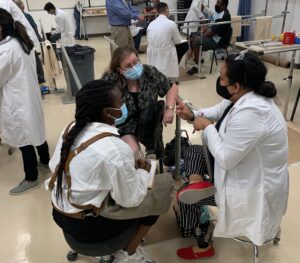
“When patients know I have a limb lost, they get very excited,” Bretado says. “I know what they go through. I’ve had practitioners who never listened to me and made me feel little.”
“I tell other students what we need to focus on more as clinicians, and that’s having an open mind and really listening to your patients,” Bretado adds. “I love the feeling of making people’s lives better, and that’s what I want to do for every patient.”
Kroener shares Bretado’s enthusiasm for patient interaction, and says that their unique perspective was helpful to fellow students in their graduate program.
“It’s a different dynamic,” Kroener said. “There are things they wouldn’t think of when treating a patient, so they were able to learn from our experiences.”
Kroener, who was raised in Scottsdale, Ariz., has always used a wheelchair due to cerebral palsy. A self-described “big advocate” for adaptive sports, she began playing wheelchair basketball at age 10–an experience which she says “opened up the whole world.”
Kroener added track and field to her athletic endeavors, earning multiple awards for discus, javelin, and shot put, and attended the University of Texas at Arlington to play on the women’s wheelchair basketball team. Being part of a tight-knit disabled community was hugely impactful for Kroener, who was inspired by her fellow teammates.
“They were independent, married, had kids, worked full-time jobs–that was really cool to see,” she says. “It showed me what was possible.”
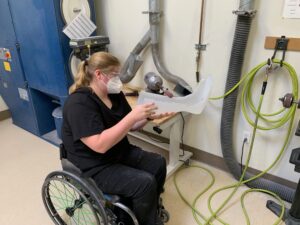
Kroener has also shared her enthusiasm for adaptive sports with Bretado, who says she wishes she “had known what is out there” earlier in life. Both students recall that none of their personal practitioners or doctors ever spoke with them about adaptive sports or other inclusive activities.
“If you’re just giving your patient a device and not helping them find opportunities within the disability community, you’re doing a disservice to them,” Kroener says. “It’s really powerful to meet other people with disabilities.”
Kroener and Bretado look forward to continuing bringing their expertise and empathy to the field post-graduation. They share a vision in which people with disabilities are afforded with respect and understanding, and difference is normalized.
“People tell me, ‘I’m sorry,’ and I’m like, ‘why?’” Bretado says. “This made me who I am. I’m a passionate person who loves people, who wants to always help people. That’s not something I’m sorry about.”


